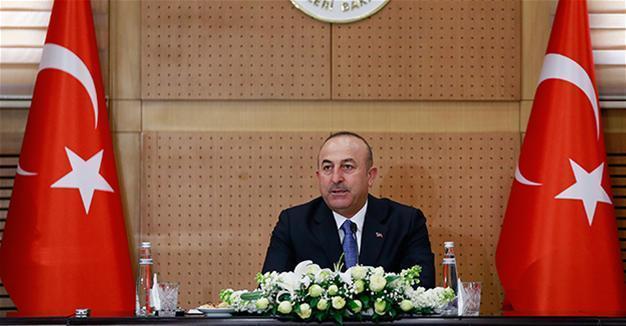Row with Germany goes on over ‘Nazi’ remarks
ANKARA / BERLIN

AA photo
A row between Ankara and Berlin over German bans on Turkish ministers’ meetings in the country and the Turkish president’s subsequent response showed no signs of abating on March 9, with fresh remarks from both sides.German Chancellor Angela Merkel told Turkey to stop comparing Germany’s actions to the Nazi era, only for the Turkish foreign minister to repeat the same comparison.
Merkel spoke unusually bluntly in the Bundestag, saying she was saddened by the deep differences which were dividing the allies despite common causes, such as fighting terrorism.
She said they should try to overcome their differences but that Nazi comparisons were unjustifiable and “so misplaced that you can’t seriously comment on them.”
“These comparisons of Germany with Nazism must stop. They are unworthy of the close ties between Germany and Turkey and of our peoples,” the chancellor said.
On March 5, an infuriated Turkish President Recep Tayyip Erdoğan described the cancelations of meetings as “fascist actions” reminiscent of the Nazi era.
Merkel said she was open to dialogue with Turkey but that any talks had to be based on democratic values.
“From our point of view, it’s worth making every endeavor to advocate for German-Turkish relations but on the basis of our values and our expectations and with clarity,” she said.
She said the roughly 3 million people with Turkish ties living in Germany were part of German society, but she warned that Turkish domestic conflicts should not spill over into Germany. Many workers came to Germany after World War II and helped transform the country into Europe’s biggest economy.
Turkish Foreign Minister Mevlüt Çavuşoğlu effectively repeated the comparison hours after Merkel’s speech, saying he was not calling the current German government Nazis but that their actions were reminiscent of that era.
“We have said that Germany’s efforts to ban the meetings are not democratic or lawful but systematic,” Çavuşoğlu told journalists on March 9 in Ankara.
“[Germans] have been fixated by the Nazi comparison. They are offended by it. We do not call the current administration Nazi,” he said during a meeting with journalists in Ankara, adding that the German media had been insulting Turkish politicians in the name of free speech.
“There hasn’t been such a practice since the Nazi era,” Çavuşoğlu said regarding the bans.
“Inevitably, these practices remind us of the Nazi era” he said, adding that the “general outlook in Europe reminds us of the pre-World War II era.”
Turkish presidential spokesperson İbrahim Kalın said Merkel was right when she said there was a split of opinions between the two countries.
“For example about terrorism,” he said. “What is sad about this is that Germany is blocking Turkey’s membership process with the EU. What is sad is that they are pumping opposition to Erdoğan.”
Last week, a planned rally in the Netherlands was barred by Dutch officials, with Prime Minister Mark Rutte saying, “The Netherlands is not a place for other countries’ election rallies.”
“We believe that the Dutch public space is not the place for political campaigns of other countries,” he added on Facebook.
Turkey will not succumb to “fascists and racists” like Dutch nationalist politician Geert Wilders, Çavuşoğlu also said.
“I will go to the Netherlands, no such obstacle can stop us... We will not succumb to fascists and racists like Wilders,” Çavuşoğlu told reporters.
















